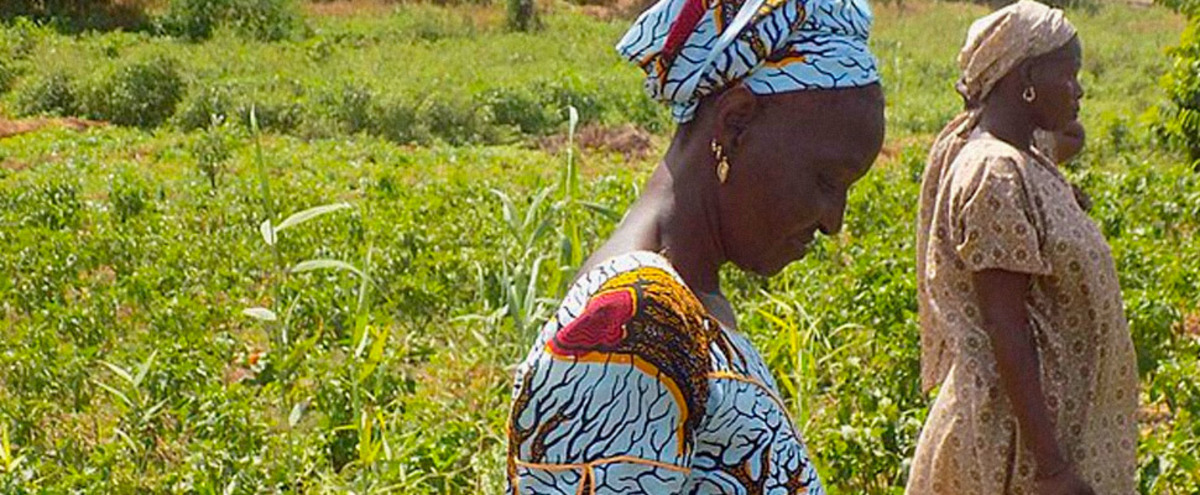Campaign To Link Rural Women to Sustainable Projects
Amid the COVID-19 pandemic, rural women have been among the hardest-hit populations, facing numerous challenges such as limited access to healthcare, education, and economic opportunities. In response to this crisis, 25 organizations and institutions have come together to promote a campaign aimed at empowering rural, indigenous, and Afro-descendant women.

The Woman Post | Silvia Manuela Gutiérrez Rodríguez
Listen to this article
These organizations and institutions have recognized the critical role played by rural women in ensuring food security, both in their local communities and beyond. They have always played a central role in agriculture and food production, from planting and harvesting crops to processing and marketing food products. This role has become even more important in the face of the pandemic, as disruptions to global supply chains have highlighted the need for local, decentralized food systems.
At the same time, rural women are often overlooked and marginalized, facing numerous challenges such as limited access to land, credit, and other resources needed to grow and market their crops. This has been exacerbated by the COVID-19 pandemic, as lockdowns and restrictions have limited their ability to access markets and sell their products.
To address these challenges and support rural women, 25 organizations and institutions have come together to promote a campaign focused on empowering women through education, training, access to resources, and even more time for themselves. Here are these organizations:
- FAO (Organización de las Naciones Unidas para la Alimentación y la Agricultura)
- ALMA (Alianza de Cónyuges de Jefes de Estado y Representantes)
- Global Bank
- RIMISP (Centro Latinoamericano para el Desarrollo Rural)
- CEPAL (Comisión Económica para América Latina y el Caribe)
- CICA (Consejo Indígena de Centro América)
- ECMIA (Enlace Continental de Mujeres Indígenas de las Américas)
- FIDA (Fondo Internacional de Desarrollo Agrícola)
- BBVA Bank (Fundación Microfinanzas)
- PRODEMU (Fundación Promoción y Desarrollo de la Mujer de Chile)
- IICA (Instituto Interamericano de Cooperación para la Agricultura)
- IFPRI (Instituto Internacional de Investigación sobre Políticas Alimentarias)
- INPI (Instituto Nacional de los Pueblos Indígenas de México)
- INTA (Instituto Nacional de Tecnología Agropecuaria de Argentina)
- MGAP (Ministerio de Ganadería, Pesca y Agricultura de Uruguay)
- ACNUDH (Oficina del Alto Comisionado de las Naciones Unidas para los Derechos Humanos)
- UN Women
- ONUDI (Organización de las Naciones Unidas para el Desarrollo Industrial)
- OIM (Organización Internacional para las Migraciones)
- PNUD (Programa de las Naciones Unidas para el Desarrollo)
- PMA (Programa Mundial de Alimentos)
- REAF (Reunión Especializada de Agricultura Familiar del Mercosur)
- SAF (Secretaria de Agricultura Familiar y Cooperativismo de Brasil)
- (SERNAPESCA) Servicio Nacional de Pesca y Acuicultura de Chile
- (SICA) Sistema de la Integración Centroamericana
Something also relevant, is that this campaign recognizes the importance of preserving traditional knowledge and practices, passed down from generation to generation and essential to sustainable agriculture and food production. By empowering women and promoting the use of traditional knowledge, the organization aims to ensure that rural communities can continue to produce healthy, nutritious food while also preserving their cultural heritage.
One of the key components of “Rural Women” is education and training. Women will be provided with access to training programs focused on sustainable agriculture, crop management, and marketing, as well as opportunities to learn about new technologies and innovative farming practices. This will enable them to increase their productivity and improve the quality of their products, which in turn will increase their income and improve their economic security.
The alliance will also focus on improving access to resources, including land, credit, and other inputs needed for agriculture. This will help women to expand their operations and increase their production, while also reducing their dependence on external sources of support.
Finally, one of the most important points will work to promote gender equality and women's rights, recognizing the importance of empowering women as a key component of sustainable development.
By empowering women, the campaign aims to promote greater gender equality and reduce discrimination against women in all aspects of life, including education, healthcare, and economic opportunities.
“Rural Women” to empower rural, indigenous, and Afro-descendant women in the face of the pandemic is an important initiative that recognizes the critical role played by women in every single aspect of life, fighting for them to reach gender equality, reduce discrimination and eliminate the limited access they have to work, education and life conditions and opportunities, mainly in rural places.
Empowering rural women can have a significant impact on communities and countries as a whole. By empowering women and promoting gender equality, it aims to reduce these barriers and create a more just and equitable society for all, because the main reason for “Rural Women”, once again, is to keep fighting for women’s rights and to demonstrate women all over the world are strong and just as important as men to have a society full of light, love, happiness, and success.




